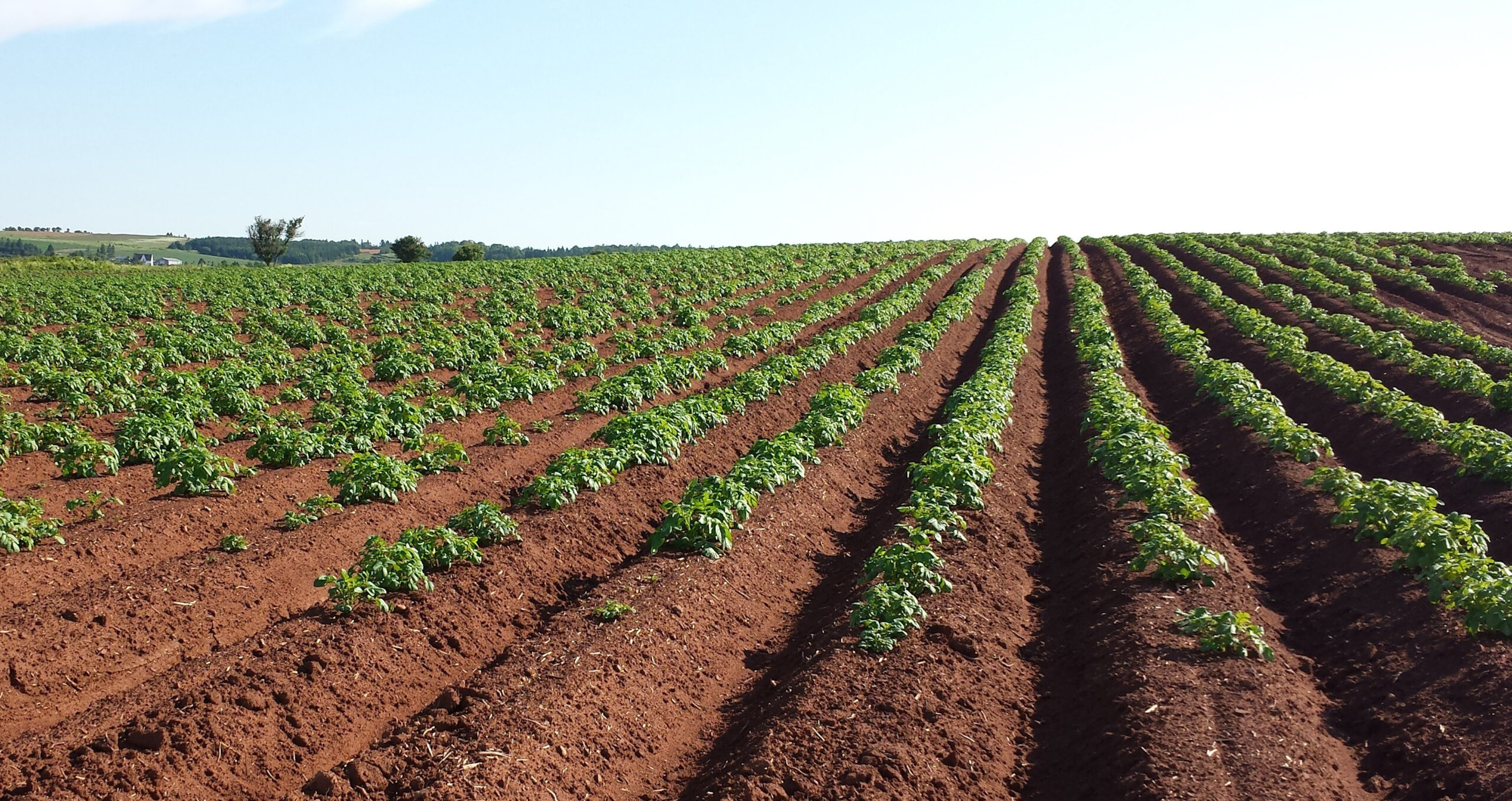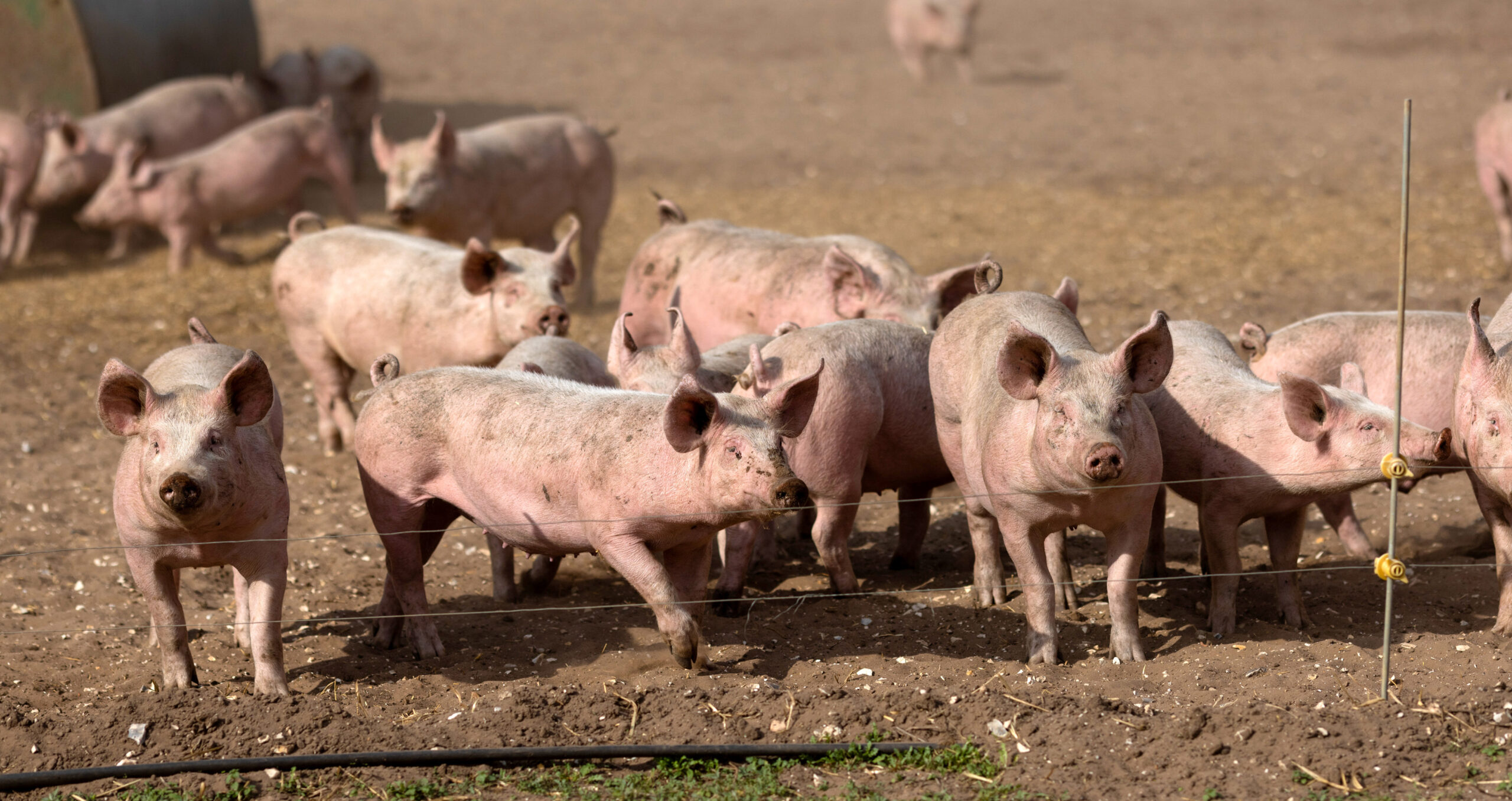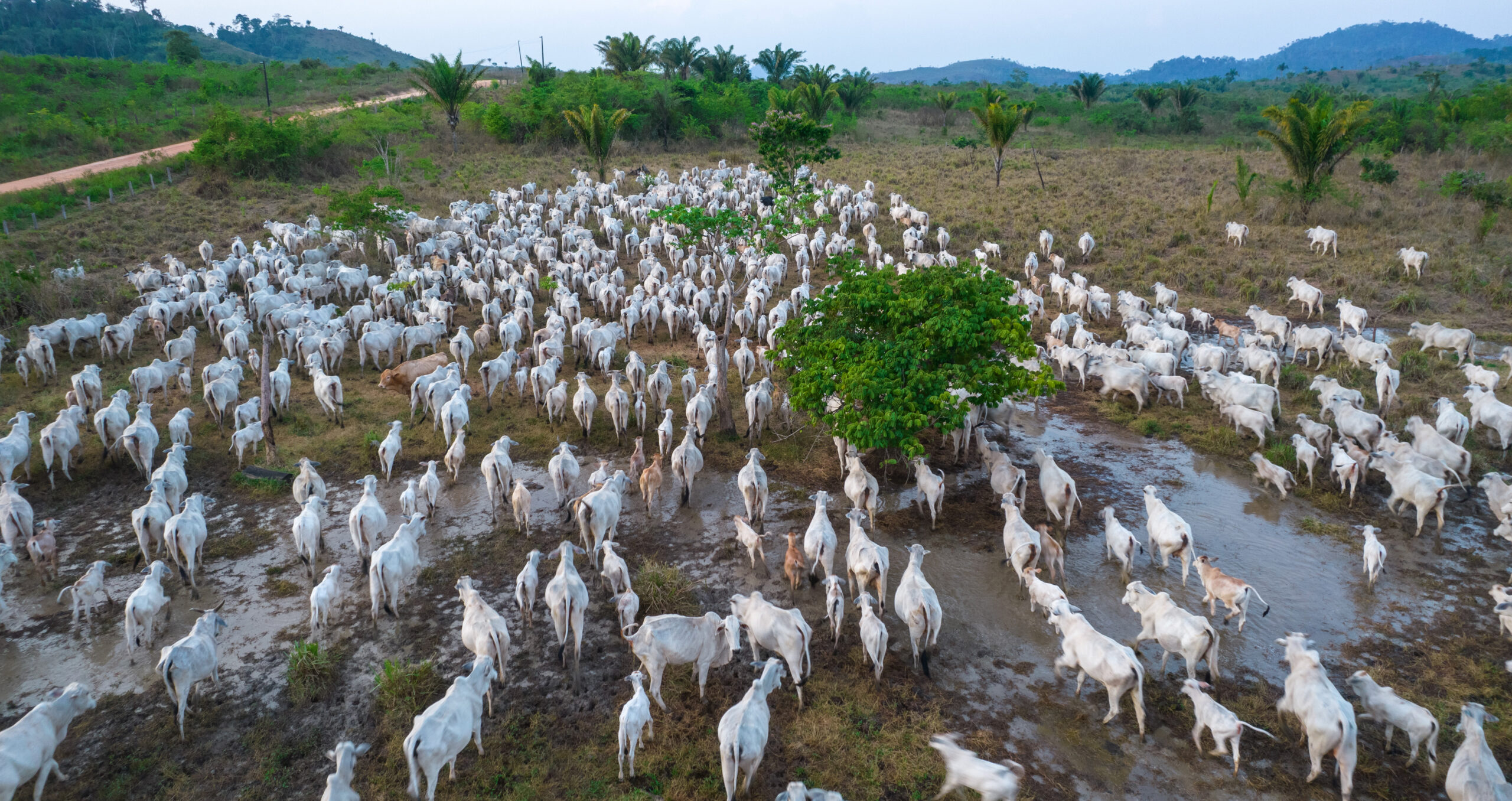
COP28: Food is on the table, but only as a side dish

World leaders have signed a declaration to make the world’s food and farming systems more sustainable. Clever coalitions and clear metrics may help put meat on these bones without creating a culture war
COP28 started with a bang for food and farming as more than 130 countries — representing 5.7bn people, 70 per cent of the food eaten globally, nearly 500mn farmers and 76 per cent of food system emissions — signed the “COP28 UAE declaration on sustainable agriculture, resilient food systems and climate action”, accompanied by various funding pledges aimed at kick-starting change in the sector.
COP hosts the United Arab Emirates announced that governments from around the world had mobilised $2.5bn to support the food-climate agenda, and the UAE, with the Bill and Melinda Gates Foundation, launched a $200mn partnership for “food systems, agriculture innovation and climate action”, focused on research and innovation.
Despite these early announcements, a plethora of food and farming side events at the summit and December 10 being “food agriculture and water day”, discussions about the sector are largely absent from the main negotiations. And outside conference pavilions, in the real world, the reform of agricultural practices remains a thorny and complex issue, even though food systems emit around one-third of global greenhouse gas emissions, consume 15 per cent of fossil fuels, and farmers and their crops are highly exposed to the impacts of climate change.
On Tuesday, only four days after the declaration, negotiations in the parallel “Sharm el-Sheikh joint work on the implementation of climate action on agriculture and food security” aimed at taking forward commitments made at COP27 concluded without consensus on even the timeline or the content of the work programme.
Further, the latest draft of the “global stocktake”, which will form the basis for the final COP28 text, also published on Tuesday, failed to include actions on food systems transformation. Fifty organisations and companies, including PepsiCo, Nestlé and Unilever, have since sent an open letter to the UN Framework Convention on Climate Change urging the inclusion of food systems in the final text.
“It is unfortunate that so soon after the declaration, the SSJW came to a weak, a problematic close,” Edward Davey, head of the World Resources Institute in the UK, tells Sustainable Views. He retains faith, however, that the final COP28 document “will include a decent text” on food systems and their role in climate adaptation and mitigation.
Claire McConnell, policy adviser for sustainable agriculture and food systems at the International Institute for Sustainable Development, tells Sustainable Views this was “a really disappointing week for food systems and agriculture in the negotiations”. The ambition and momentum around the declaration “has not carried over into formal negotiations”, she says.
“We cannot achieve the targets of the Paris Agreement and limit warming to 1.5C without radically transforming our food systems,” says McConnell. “As we move into the second week of negotiations, it’s important that parties that have spoken out in favour of including food systems in the decision text — among them large agricultural producers and consumers like Brazil, New Zealand, Colombia and the EU — continue to do so.”
Davey suggests part of the problem is the lack of agricultural experts in the room. “Of the 500 people at COP most central to the negotiations of the global stocktake text, I would argue that the majority think about energy and fossil fuels,” he says.
Redirecting subsidies
And even if sustainable food and farming systems do make their way into the final text, the task ahead is mammoth, complicated by divisive politics and high emotions.
In recent months in the EU, farmers have blocked roads in France, Belgium and the Netherlands in protest at attempts by Brussels and national governments to green agriculture. The European Commission, in the face of pushback from centre-right MEPs, has failed to propose a sustainable food systems law as originally planned under its flagship Green Deal policy. Likewise, Republican media Fox News has gone into overdrive over the “Global roadmap to 1.5C” expected to be published by the UN Food and Agriculture Organization at COP28 on Sunday, showcasing it as an anti-meat tract.
“We need clever coalitions of farmers who have an economic incentive to shift” to more sustainable practices, says Davey. “We must avoid the culture war scenario. Politics and division could really threaten progress.”
“In the EU, there is such a strong case to move in the direction of sustainable food systems,” says Davey, citing the significant losses farmers across the continent have suffered in recent years from drought and the “health indicators” showing many people should eat less meat and other bulk substances that make up the majority of European agricultural production. Together, these factors make an “economic case for pivoting to a more sustainable framework, but the politics couldn’t be harder”, he says.
We cannot achieve the targets of the Paris Agreement and limit warming to 1.5C without radically transforming our food systems
Claire McConnell, International Institute for Sustainable Development
To try to alter this dynamic, Davey suggests “an all-of-society movement for change in each country” is needed. “A groundswell of support for the transition to more sustainable and resilient food systems — from farmers, businesses and citizens — is the essential prerequisite for leaders to act.” He suggests cross-party political coalition building and ensuring farmers are at the heart of the transition, rather than a top-down approach, as potential ways to ease some of the tensions.
Creating fully sustainable farming systems will mean touching subsidies in the EU and the US — a highly sensitive area — and ultimately redirecting them away from industrial farming. And irrespective of political views, eating less meat will be on the agenda to reduce emissions and to free up more land for nature and to feed humans, rather than animals.
Raphaël Podselver, director of UN affairs at ProVeg International, a Berlin-headquartered non-profit, advocates that countries “redirect the subsidies the industrial animal agriculture sector receives, invest in [research and development] around alternative proteins, and lower VAT on plant-based products” to speed up the shift away from meat. He welcomes recent efforts by Denmark, the Netherlands and Germany to “invest in alternative proteins and encourage a shift towards healthy, plant-rich diets”.
But Podselver is clear that “it is policymakers who have failed us on food systems, not the farmers who are suffering from unfair margins and are working very hard to feed us”, and that they need support to change practices. “The lack of importance governments have placed on the role the food systems play in solving the net zero puzzle has, to date, sent the wrong signal to consumers, businesses and industry,” he says.
Role of agroecology
Ruth Segal, food systems policy lead at non-profit Cafod, says: “Funding should focus on strengthening local food systems and identifying context-specific responses.” She agrees with Davey that “top-down solutions won’t work” and that “farmers’ voices” should be “at the centre of responses to meet their needs”.
Cafod would like the final agreement at COP28 to increase the recognition of and financing for agroecology — sustainable farming that works with nature — as an effective approach for climate action. “Cafod’s research shows high-tech solutions touted by big food and chemical companies are almost always out of reach for small-scale farmers, who prioritise reliability over risky innovation, and that agroecological approaches consistently deliver a reliable harvest,” Segal says.
Chemical company Bayer takes a different view. “I believe there is a significant role for big agriculture, but we can’t do things as we have always done,” Bayer supervisory board member Ertharin Cousin tells Sustainable Views. “We know the agriculture system has been extractive and has resulted in regrettable impacts on water, air and land,” but “agriculture is so complex that we need a diversity of solutions that meet the needs of each of the farmers”, she insists.
Bayer’s reaction to the need for change has been in June to refocus its $2.5bn annual research and development budget on regenerative agriculture, says Matthias Berninger, the company’s senior vice-president for public affairs, science and sustainability. This pivot means spending to develop products aimed at reducing emissions and making farmers more resilient in the face of climate change.
Berninger highlights tomatoes that can survive in harsher climates, a short corn that is less carbon-intense as it requires less water and land to grow, and dry rice systems that need less water and produce less methane. Many of these products rely on gene editing. He welcomes changing attitudes to biotechnology in the EU, China and counties in Africa, including Kenya, Ethiopia and Ghana. “They realise that to have a winning chance against climate change, they need to welcome innovation,” he says.
Funding should focus on strengthening local food systems and identifying context-specific responses
Ruth Segal, Cafod
Unsurprisingly, as a chemical company Bayer sees a considerable role for pesticides and fertilisers in a more sustainable system, even if its stated goal is to reduce the environmental impact of crop protection by 30 per cent by 2030. “We need to give the soil what it needs; no more, no less,” says Cousin. “We cannot continue with the agricultural practices of the past. We talk about the future where context is important and the necessary tools should be provided for every farmer.”
“Let’s not always give agroecology voices the floor,” says Berninger, insisting that “the policies of Sri Lanka settle the debate” on whether agroecology practices can feed the world. He is referring to the sudden ban imposed in April 2021 by the Sri Lankan government on the import of agrochemicals, which led to reductions in crop yields, high prices and poor food security.
“What happened in Sri Lanka had nothing to do with agroecology,” Emile Frison, member and founder of IPES-Food, an independent panel of sustainable food system experts, tells Sustainable Views. “The government was short of foreign currency and so banned agrochemicals with no attempt to tell farmers what to do instead. This was not an agroecological transformation, but a way to decrease expenditure for importation.”
Segal says Cafod’s partners are working with “national research institutes and farmers across Sri Lanka to produce organic fertilisers at scale, ensuring long-term resilience to economic shocks and climate change”. This work “shows the ban could have been possible if there had been proper investment and a transition plan”, she says.
Metrics and measurements
These diametrically opposed views of agriculture in one small country highlight the challenge at hand. Creating ways to measure the farming transition will be central to avoiding deadlock and mud throwing between those on different sides of the debate.
“While the private sector has a role, its primary focus on profit poses challenges,” says Segal. She accepts that “adapting finance mechanisms, working with a coalition of willing private finance institutions and de-risking investments can improve support for local food systems”, while underlining the need for metrics to prove what does and does not work. Sustainable food and farming metrics should measure “broader impacts, including health, pollution and inequality”, she says, calling for “investors and institutions willing to take the lead on this”.
The Regen10 initiative, whose partners include various non-profits and the World Business Council for Sustainable Development is working on developing a regenerative food systems framework to track the food and farming transition. The first draft, published at COP28, is based on 10 principles covering the environmental, sociocultural and economic dimensions of the transition and is aimed at measuring outcomes that benefit the climate and people.
“Farmers and landscape stewards can decide to share their data with value chain actors, including companies, so they better understand how the supply chain can empower farmers to transition to more regenerative practices,” says Morgan Gillespy, executive director of the Food and Land Use Coalition, and a member of Regen10. “To do this at scale, businesses and existing corporate reporting frameworks should be guided by the Regen10 framework.”
“Rather than a defining benchmark,” Gillespy says he hopes Regen10’s work will act as “a blueprint for existing frameworks, especially those focused on corporate reporting, to guide them as to how metrics can evolve and ensure all actors equally prioritise people’s livelihoods, economic growth and the climate”.
Paul Winters, an economist at the University of Notre Dame, and US and executive director of the Innovation Commission for Climate Change, Food Security and Agriculture, acknowledges the urgent need for change, but suggests, at least initially, an “evolutionary rather than a revolutionary approach” to the food and farming transition.
“I don’t think the climate community has been great at working with farmers to come up with solutions,” Winters says. “It isn’t the same as telling people to ride their bike more; we have to incentivise farmers and recognise this is their livelihood.”
Back at the UN climate summit, it would be easy to dismiss the potential impact of the non-binding food and farming declaration. Yet the very fact the sector’s climate impacts are finally being acknowledged by political leaders is important progress, insist those calling for reform of the world’s food systems.
“This is the COP when food systems and agriculture truly came of age as central to resolving the climate emergency,” says Davey. “The leaders’ declaration sent a powerful signal. All nations now have the chance and the responsibility to bring food and agriculture into the heart of their climate efforts.”
Similar Articles

Agri-food industry needs $500bn a year to reverse environmental impacts, says UBS

Organic and free-range meat has higher environmental impact, says WRI report


